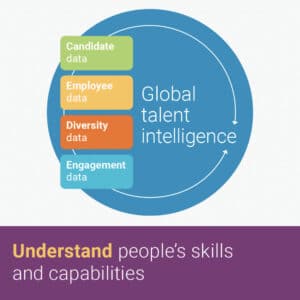Forget the booming housing market. The job market is the biggest seller’s market in decades, making talent retention an uphill battle for most employers. According to Work Institute’s 2021 Retention Report, voluntary turnover is back to pre-pandemic highs, and risks rising even further from “bottled-up” turnover. The U.S. Bureau of Labor Statistics reports that voluntary turnover is at its highest point in over 20 years. Worse, it foresees a tight job market into the 2030s — meaning things aren’t changing anytime soon.
So if the market isn’t changing, perhaps it’s time for us to pull out our looking glass and see if our current processes need rethinking.
The cost of replacing an individual employee can range from one-half to two times the employee’s annual salary — and that’s a conservative estimate. –Gallup
Not only is turnover expensive for a business’ bottom dollar, it also has intangible impacts on culture, satisfaction, employee trust, and productivity.
Four reasons employees leave
Several factors are influencing this challenging new era of talent management, including the baby boomer generation reaching retirement, the increase of remote working options, pandemic-induced burnout, and a growing prioritization of work-life balance. While many of these factors — like a pandemic — are uncontrollable, many other factors can be mitigated or eliminated with the right talent strategy. Here are four ways you might be inadvertently losing employees, and what you can do about them.
Employees don’t know about opportunities within your organization and look elsewhere.
Maybe an employee is ready for the next step in their career, but if they don’t think there’s an opportunity for them at your organization, they’ll likely look elsewhere. When employees leave, they not only take their skills with them, but all their knowledge equity too. Giving employees customized career plans and tailored training can help them know exactly where they’re headed and what they need to get there. Transparency is key.
Your organization doesn’t have a full picture of your employees’ skills and potential.
We’ve all seen the jokes about job descriptions for junior-level positions requiring 10 years’ experience, a master’s degree, and a recommendation from the U.S. Secretary of State, but what’s really behind these fluffed-up job descriptions is the desire to find reliable and competent talent. Employers don’t want to get burned. What if there was a way to understand candidates’ and employees’ capabilities beyond past roles and degrees, a way to evaluate the potential of your talent based on previously successful employees? If employees aren’t appreciated for what they bring — or could be bringing — to the table, they may look for a company that will appreciate (and compensate) them for their skills.
It’s hard for employees to see their potential career path at your organization, especially outside their function and department.
Often a career isn’t a ladder — it’s more like an obstacle course with twists and turns, peaks and valleys, and all kinds of special life moments in between. What people study in school is often different from their career, and mid-career pivots are becoming more common. Employees looking for something new, especially as the pandemic causes new levels of self-reflection, might think they need to find these opportunities outside your organization. How great would it be if employees were empowered and trained to move in any direction they wanted within your organization?
Your organization isn’t offering the right upskilling and reskilling opportunities employees need to move ahead.
Learning and development teams will often send out emails about upcoming webinars, or they’ll have training modules available within their talent portal, but each employee needs training meaningful to their career, and training is hardly a one-size-fits-all bucket. Employees need a way to receive the training, projects, and mentorship opportunities that will help them grow in the direction they want — or they’ll seek it elsewhere.
Enter The New Talent Code
Traditional HR systems and technologies can’t solve these issues alone. These systems weren’t designed to find potential, and don’t deliver the best experience for candidates, employees, or recruiters. To successfully hire and keep top talent, you must understand what people are capable of now, what they could do tomorrow, and what skills they need to succeed.

Talent Intelligence in practice
Eightfold’s Talent Intelligence Platform uses machine learning and a global talent dataset of more than 1 billion talent profiles to help your organization see much further into the talent pool and know exactly what current talent is capable of achieving. With the Eightfold talent suite, you can reveal and sharpen your employees’ skills, talents, and aptitudes to help them advance in their careers and achieve a renewed sense of meaning. Employees can easily update profiles to get recommended jobs, mentorships, and training, with the right career development content being delivered to the right employees at the right time. With Eightfold, you unlock previously unexplored career potential for employees within the organization, which improves employee satisfaction and retention, helping create a better workplace experience for everyone.
Want to learn more about Eightfold and The New Talent Code? Check out the infobook or request a demo today to see how Eightfold can help you transform your employee experience.
